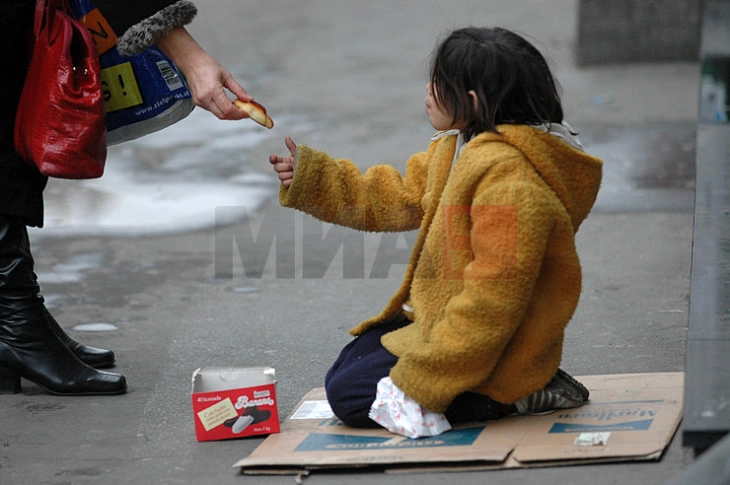International Day for Street Children, poor socio-economic situation of families one of key challenges
- Public Advocate Office's Vaska Bajramovska Mustafa presented on Friday a research on street children in North Macedonia, marking the International Day for Street Children, April 12. One of the main recommendations from the research is that improving the difficult socio-economic situation in which families live, as one of the main reasons why they often go out on the street, is a prerequisite for resolving the issue of street children and streetism.
- Post By Nevenka Nikolik
- 13:37, 12 April, 2024

Skopje, 12 April 2024 (MIA) - Public Advocate Office's Vaska Bajramovska Mustafa presented on Friday a research on street children in North Macedonia, marking the International Day for Street Children, April 12. One of the main recommendations from the research is that improving the difficult socio-economic situation in which families live, as one of the main reasons why they often go out on the street, is a prerequisite for resolving the issue of street children and streetism.
Bajramovska Mustafa told reporters at Friday's event the research shows that streetism still exists, although measures are being taken by the competent authorities by adopting protocols for multi-sectoral work to overcome this issue.
"The data we provided through the social work centers, the Institute for Social Activities, interviews with the parents themselves, the children cared for in the day care centers for children at social risk, children on the street, show that still the reasons for streetism are not taken seriously, bearing in mind that the largest number, as you said yourself, if not almost all of the children who beg on the streets are members of the Roma community, come from families that live in extremely poor living conditions, in substandard living conditions, without water, without electricity, without any possibilities for normal growth and development, and they only make living through begging or possibly securing the right to social protection," she said.

She added that according to the Public Advocate Office this situation sounds the alarm and calls for a much more serious commitment to resolving the issue of street children, considering that a part of these children are not even registered in the birth registry, which makes them even more socially vulnerable.
The fact that we witness daily children who do not beg on the streets alone - they also beg with their parents, with other people who are, or may not be, their relatives, indicates the involvement of all institutions to resolve the issue, says Bajramovska Mustafa.
"There is a protocol for intersectoral work, i.e. involvement of all institutions to resolve this issue - involvement of the competent Ministry of Labor and Social Policy, social work centers, the Ministry of Health, the Ministry of Interior, civil society organizations, local governments, and we believe that this protocol, if it is observed as an established norm, as a rule in the protocol, it can give serious data," she adds.

The most appropriate solution, according to the Public Advocate Office, is to be able to work with both the children and the parents equally.
"The difficult socio-economic situation in which these families live is one of the reasons why they often end up on the streets. That's why one of our recommendations from the research is to provide a permanent income to these families because making a living with social assistance clearly does not provide the necessary results. Ensuring, if possible, the employment of these people, educating them, enable their retraining if necessary," Bajramovska Mustafa said.
As regards the number of street children, she noted that it was difficult to give an exact number as different institutions, social work centers, civil society organizations etc. give different numbers, and even if there is an average number of 70-80 children who are being taken care of, such a number is not a realistic one, which is yet another alarm that much more serious work is necessary to resolve the issue of street children.
The event is supported by the European Union.
Photo: MIA







